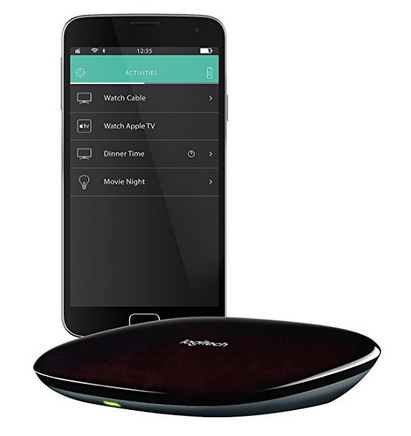FireEye researchers have discovered several vulnerabilities in the Logitech Harmony Hub home control system. The vendor has released a firmware update that patches the flaws.
Logitech Harmony Hub allows users to control home entertainment and various other smart devices from an Android or iOS phone or tablet. Once initial pairing is done over Bluetooth, the Harmony app communicates with the Harmony hub using an HTTP-based API.
Researchers at FireEye have discovered several types of vulnerabilities that can be exploited by an attacker with access to the local network to take control of devices linked to the Hub and compromise other devices on the network.
The security firm believes the flaws could pose a serious risk considering that the Harmony Hub is used by some people to control smart locks and thermostats.
Experts discovered four types of vulnerabilities that can be combined to gain root access to a device via SSH.
One of the security holes is related to the presence of debugging details in the production firmware image. Another flaw is related to improper SSL certificate validation during firmware updates. The firmware update process itself has also been found to be insecure, allowing an attacker to deliver a malicious update to the device.
Since no root password has been configured on the hub, an attacker could gain root access via SSH if they can somehow manage to enable the Dropbear SSH server. Enabling the server is possible by uploading specially crafted firmware using the previously described weakness.
Logitech was informed about the vulnerabilities in late January and patched them on April 10 with the release of firmware version 4.15.96. The vendor has advised customers to install the update and provided complete instructions on how to do so.
The company noted that the flaws affect its Harmony Hub-based products, which include Harmony Elite, Home Hub, Ultimate Hub, Home Control, Pro, Smart Control, Companion, Smart Keyboard, Ultimate, Ultimate Home, and harmony Hub.
“As technology becomes further embedded into our daily lives, the trust we place in various devices unknowingly increases exponentially. Due to the fact that the Harmony Hub, like many IoT devices, uses a common processor architecture, malicious tools could easily be added to a compromised Harmony Hub, increasing the overall impact of a targeted attack,” FireEye researchers explained.
Related: Millions of IoT Devices Possibly Affected by ‘Devil’s Ivy’ Flaw
Related: Remotely Exploitable Flaws Found in SmartCam Cameras
Related: Security Flaw Could Have Let Hackers Turn on Smart Ovens
Related: New Botnet Is Recruiting IoT Devices














